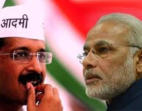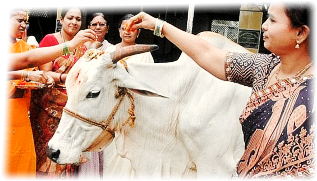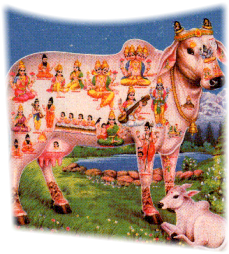





‘Knowledge is power’

Why The Hindus Revere The Cow And Try to Ban
Cow Slaughter And Beef in India
MIDDLE EAST
World’s
encyclopedic
knowledge
compacted
in
your
hand




Raise the vol to listen to the
lady airing awe @ the SINGLE author encyclopedia
You may also like:
Disturbing stats on black-white inequality
Now girls are a THIRD more likely to go to university than boys
Sound effect: Bhajans (Hindu faith songs) helping Autism
Lessening productivity 50% of Americans have worked with a hangover
Scientists say fist bump is healthier than handshake ?Hug & kiss
Meet Darknet, the hidden underbelly of the searchable Web



With Swami Vivekananda saying ancient Hindus ate beef, Hindus relishing it's taste today -
even owning slaughterhouses - rest seeing it as freedom of eating culinary delicacy and the
cow seen as just a four legged animal that gives milk and leather, and even causing a
nuisance when old, there seems to be no reason why the dumb animal should be regarded as
a mother - let alone worshiping it or making laws against killing and eating its flesh in a
secular India.
Even if the view of the 'rest' is left alone, a cursory look by anybody at the reasoning given,
would make him/her concur with the idea.
But then, why is the cow so important for the Hindus?
Status of cow in Hinduism:
Yes 'it gives milk so Hindus see it as a mother'
pontificated the pizza- slice logic using Western
India expert during the Raj and the Hindus followed
it as the gospel truth. But then, buffalo isn't less
used and Gandhi was happy just with goat’s milk
alone. Furthermore, almost supporting the saying,
'it's every part is useful', unlike the medicinal
camel's urine her urine is a spirit and puja purifier
too. Yes both can have their skins utilised after death, but when alive, the smell less cow
dung alone is used for floor cleaning and fuel at home, and as a prime and innocuous
fertilizer in the field outside.
Yes, described as the best of creations, and filled with and
worshipped by a complete set of divinities (you may call it 33
groups or millions), these descendants of Kamadhenu are non-
aggressive humble beings. Unknown to many, they offer similar
emotions to the joys and sorrows of their owners like the man's
best friend - the dog. In addition, like a missed Ganesh worship
invalidating a puja, a missed cow ghee disqualifies any Vedic
sacrifice. Being the best of donations in addition, donating 1000
cows was a routine for the ancient ones with blue blood.
With the prized dharma - ahimsa - like martyrdom for Allah in
Islam - guaranteeing heavenly abode, vegetarianism is seen as a
Hindu ideal. While its disregard itself doesn't bring spiritual
laurels, going against aghyna (inviolable) ahi (not to be killed) and aditi (never to be cut into
pieces) as is said of the cow in the Vedas brings about severe punishment both here and
hereafter. Yes mistranslating and misquoting texts to rule over he yet to be civilized Indians,
while the Western Ideologists did have a field day with, 'ancient Hindus ate beef', the Hindus
became tuned listeners. Thus, in addition, despite the above Vedic injunctions, if Swami
Vivekananda indeed say, 'ancient Hindus ate beef' that knowledge is not from the Vedas or
his meditations but from the then Encyclopaedia Britannica. Funnily enough, almost
reminding the concept of them aliens and us humans, Hinduism does not seem to be alone.
Its rival, the takers of India's North East also produce Issaih, chapter 66 verse 3 that offers
security to the bovine's life. As if not to be left out, the 14% minorities bring in their
Prophet's uneasiness with beef diet in Tabarani and Mustakrak al-Hakim. However, when
atheism promoting sinful secularism is favoured as a battle cry by them, divine and prophetic
dictations lose their merit. Hindu businessmen don't seem to be doing any better, either. In
fact, with the incoming cash being more luring than the outgoing fear of God, spices making
it a delicacy and the rise of the Chinese middle-class guaranteeing global beef boom like for
the old whine and the UK's addictive new chicken tikka masala, Hindus owning slaughter
houses don't surprise us. So long as freedom remains, a part of that dosh travelling to the
making of temples, won't be a surprise to us either.
Cow slaughter and beef laws:
Although American reporters don't; secular Indian reporters using free speech feast on, 'What
about the minorities?' Or 'State intruding into our kitchen tables', when laws barring beef is
being formulated. Hindu intellectuals struggle to remain dry. NEXT


1 2




WOMEN’S POWER: ITS PAST, ITS PRESENT, ITS FUTURE: FEMOCRACY
WEB PAGES
OUR OFFERING
UPLOADED ITEMS
OUR EMAIL
kri200@womenspowerbook.org
QUESTION



















